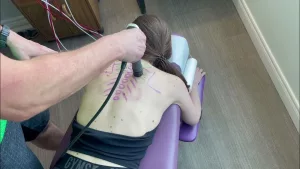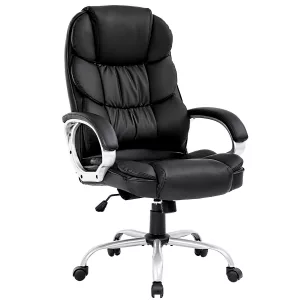
Why Is My Back Doing This?
Okay—let’s just say it: there are few things more anxiety-inducing than suddenly realizing you can’t bend over to tie your shoes. Or scratching your head, baffled, as you’re stuck halfway reaching for your bag on the floor, thinking, “This wasn’t an issue yesterday…”
Listen, you’re not alone. That stab of pain? The dull ache that ruins your sleep? Been there. Most of us have. Want to know a not-so-fun stat? Up to 80% of people deal with lower back pain at some point, according to health nerds far smarter than me. Sometimes it fades away, but sometimes…it doesn’t. That’s where knowing which doctor that specializes in back issues comes into play. Your shortcut to feeling human again.
I used to brush off twinges as “just one of those days”—until a buddy of mine (let’s call him Mike) ended up skipping our weekly basketball game for a month. Turns out, ignoring that nuisance pain is like pretending your check-engine light is “optional.” Spoiler: It isn’t.
Is This Twinge or Trouble?
Let’s play a game. What’s the difference between “I overdid it” and “Uh-oh, I need help?” Trust me—your body’s got some ways of waving those little red flags. It’s not just all drama.
Does Your Pain Refuse To Leave?
Ever have a backache linger for more than a week? Two? Annoying, right? If the pain’s hanging around like a bad houseguest, there might be more going on under the hood. What about sharp zaps running down your legs, or that needles-and-pins feeling?
Here’s the thing—according to research on specialist care (see this breakdown), certain symptoms mean it’s time to stop guessing and start getting answers. If you’re noticing numbness, tingling in your arms or legs, or sudden weakness (like… your morning coffee cup suddenly feels ten pounds heavier?), put down that internet search and call an expert. Or, to borrow from my neighbor’s story, don’t write off that “pulled muscle” if it gets worse, not better.
Quick Symptom Check: Specialist vs. Everyday Strain
| Everyday Strain | Specialist-Worthy Signs |
|---|---|
| Goes away with rest | Lasts more than 2 weeks |
| Soreness after activity | Pain shoots down legs (sciatica) |
| Stiff, but improving | Numbness/tingling, weakness |
| Relieved by stretching | Loss of bladder/bowel control (see a doctor ASAP!) |
Who’s Really Got Your Back?
So, you’ve done the quick self-test…and your gut says it’s more than just “slept funny.”
Here’s where it gets interesting—there isn’t just one doctor that specializes in back stuff. It’s a whole community. It’s like casting the perfect ensemble for your favorite medical drama. And, real talk: when you get a good team, it’s a game-changer.
Orthopedists vs. Neurosurgeons: The Showdown
Ever try to figure out if an orthopedist or a neurosurgeon is your person? Both are seasoned with years (and years) of extra training, but here’s the scoop:
- Orthopedists are your go-to for problems with bones, joints, and muscles—think herniated discs, injuries, or surgeries like spinal fusion. They know how to rebuild and stabilize the architecture of your back.
- Neurosurgeons focus on issues with your nerves and spinal cord—like when something squishes a nerve and you get that shooting pain down your leg. Some stuff only a nerve doc can wrangle.
But it’s not always about the knife. The best surgeons…won’t rush into surgery (crazy, right?). That’s why finding a clinic or group that works as a team—like at Penn spine Center doctors—can give you options from gentle, non-surgical options to the gold-standard fixes.
Actually, I remember a friend who thought he’d need a major operation. Surprise: they started him on targeted exercises, some gentle work with a physiatrist, and he totally dodged the scalpel. Now he jokes that his only “scar” is his gym membership fee.
Should You Start With a Physiatrist?
Wait—what’s a physiatrist? (Honestly, I had to Google it too. Not ashamed.) Basically, they’re experts in treating back pain—without reaching for the scalpel on day one. Think of them as your “rehab quarterbacks”—they coordinate care, focus on pain, movement, and rehab before even talking about surgery. It’s an option many don’t know about, but honestly, it’s sometimes the better first step for chronic pain or after an injury that simply won’t move on.
In places like NYU Langone and other high-volume centers, they’ll often team up with spine surgeons, ensuring you get every angle—movement, medication, targeted injections—covered first. For those in PA, having a team like the Penn spine Center doctors on your side means your care is tailored and collaborative.
The Hunt for the Best
Okay, let’s get honest: when pain drags on, what you really want is the Best spine surgeon in Pennsylvania (or, well, wherever you live). Not someone who just glances at an x-ray and says “see you in the OR.” But someone who listens, checks all the boxes, and explains stuff in real words.
Here’s what to look for—without getting buried in jargon.
What Makes the Best Stand Out?
I always thought “all doctors are the same” (oops). Turns out, those with high-volume experience in spine care and surgery, especially at top hospitals or disciplines like at RWJBarnabas or HSS (details on their multi-specialty teams), see so many types of cases, they’ve got a sixth sense for the right call. And they’re up on the latest techniques—so if there’s a way to fix your pain through minimally invasive surgery (tiny incisions, faster recovery), they know all the tricks.
How to Compare Your Options
| Factor | Look For… |
|---|---|
| Experience | Years/training in spine surgery—ask directly. |
| Approach | Do they try therapy, injections or conservative fixes first? |
| Tech | Do they use minimally invasive tools for faster recovery? |
| Team | Collaborative (orthopedist + neurosurgeon + physiatrist) gets you more options. |
It’s easier than it sounds to find these folks, too—proof: the Best spine surgeon in Pennsylvania tends to work directly with pain management and therapy teams. Three of my neighbors, after trying PT and injections, ended up only needing surgery for truly stubborn pain—and all raved about feeling “heard” through every stage. That’s what you want. And, locally, those surgeons often coordinate with Penn spine Center doctors to make sure nothing’s missed.
What About Non-Surgical Roads?
Have you noticed how often docs recommend “start small” first? Real talk—most of us want to avoid surgery anyway! Your journey might look like a buffet: therapy, lifestyle tweaks, medication, and sometimes targeted procedures. Only the stubbornest pain (or scary things like sudden weakness or bladder problems—yeah, those are a big deal) goes to the OR.
This approach is gold. In fact, clinics focusing on spine health (and their expert blog teams) will say that what matters most is you getting back to your life—not just zapping pain for a month, but building strength so it stays gone. If you want a personal touch: try making a small change while you wait for your specialist—standing up every hour, adding a gentle back stretch, or tweaking your work chair. I’ve had folks email me about the difference a small tweak (like a lumbar pillow) made before they ever saw a spine doc.
If you’re in PA, the Best spine surgeon in Pennsylvania will almost always walk you through conservative therapies before anything major. That’s good medicine.
What Should You Ask?
So, you’ve reached the office. It’s finally time to talk face-to-face with a doctor that specializes in back health. Deep breath. This is where you control the pace.
- “What’s the actual cause of my pain?” Not just “it’s your back, live with it,” please.
- “Are there non-surgical fixes we can try first?” Don’t be shy.
- “If I do need surgery…what’s the recovery really like?” No sugarcoating. You want to know if you’ll be dancing at a wedding next month or not.
- “How will you keep me comfortable during recovery?”—Pain management is a big part of quality care.
Empower yourself—don’t just sit quietly! Surgeons and specialists love an engaged patient (at least, the good ones do). It makes their job easier, and you get real answers.
Lifestyle Tweaks: Patient-Approved Hacks
| Tip | Why It Helps |
|---|---|
| Move every hour | Prevents muscle stiffness, eases minor pain |
| Try gentle yoga or stretching | Loosens tight spots without overdoing it |
| Fix your chair/desk | Good ergonomics can remove daily triggers |
| Heat & cold packs | Relieve pain in a pinch |
One reader shared how standing up to refill her water every hour at work made her hip and back aches pretty much disappear—sometimes, the little things really do add up.
Exploring your options locally? The Best spine surgeon in Pennsylvania and the team at Penn spine Center doctors both bring this holistic, lifestyle-informed approach. It isn’t just about medicine or surgery—it’s about you, the whole person, living better day by day.
Ready For Relief?
Whew. If you’re still reading, I hope by now your back feels just a tiny bit lighter—maybe a touch of hope in the air. Here’s the real talk: Back pain doesn’t have to rule your days. The key is to listen to those warning bells, look for a doctor that specializes in back pain and health, and trust your gut when you feel you need more than “walk it off.”
Today, you’ve got options. Your journey might start with the Penn spine Center doctors for a gentle, team approach—or maybe you’ll track down the Best spine surgeon in Pennsylvania for a second opinion. Point is, you don’t have to figure it out alone (or let Google be your only second opinion).
If you’re dealing with that deep, frustrating ache, don’t wait around hoping it’ll “just disappear.” Reach out, ask the right questions, and take those small steps now—your future self will really thank you for it. And if you’ve got a story or a secret tip that turned your back pain life around—drop it in the comments. This is how we all feel less alone. Here’s to moving stronger (and, just maybe, tying your shoes tomorrow without thinking twice!).























Leave a Reply
You must be logged in to post a comment.